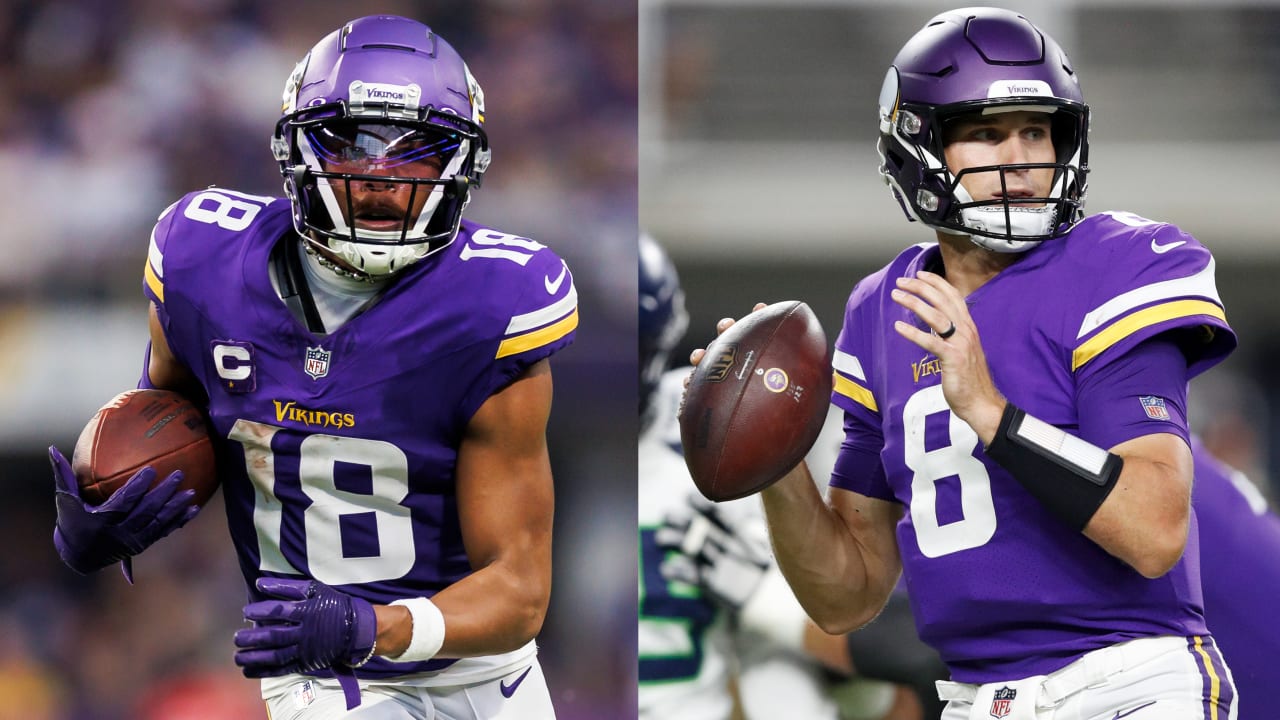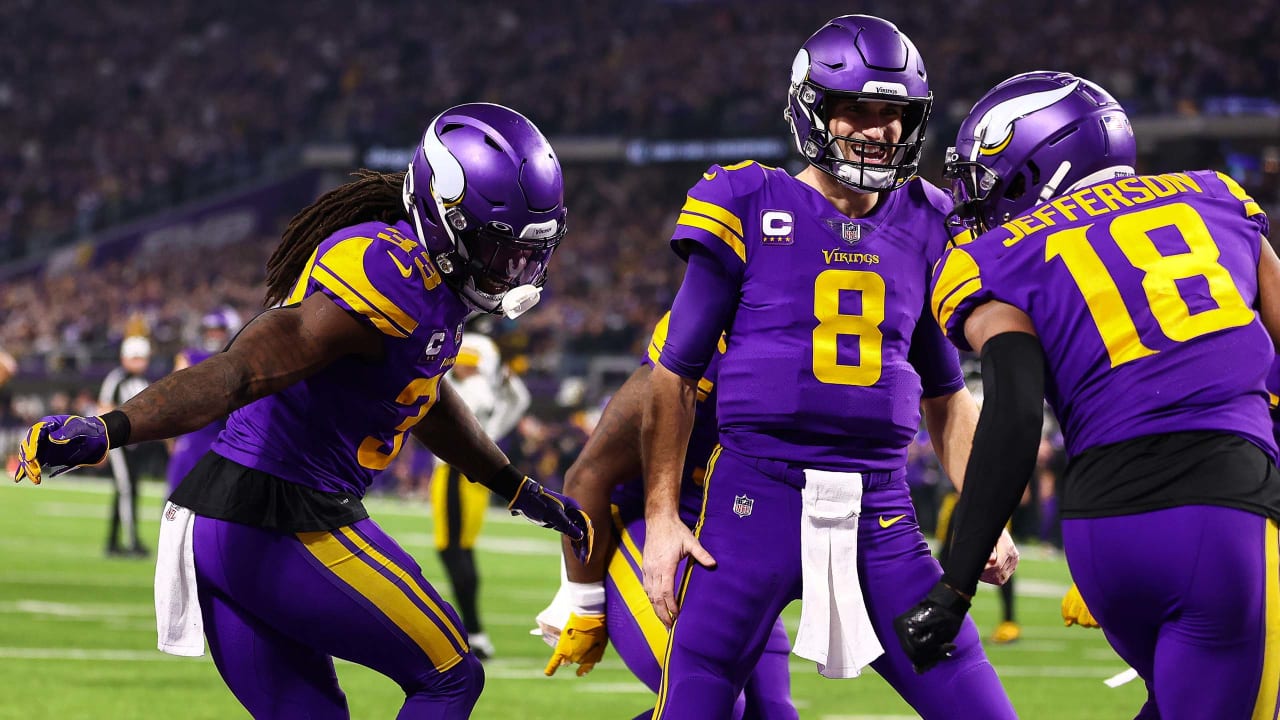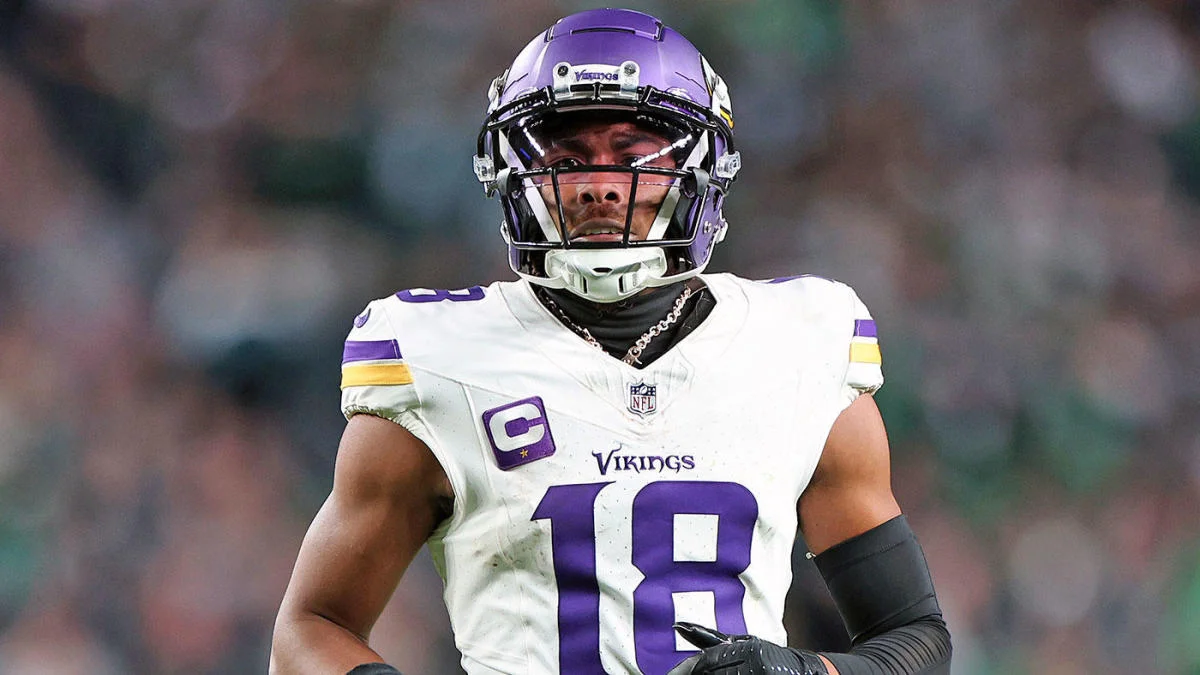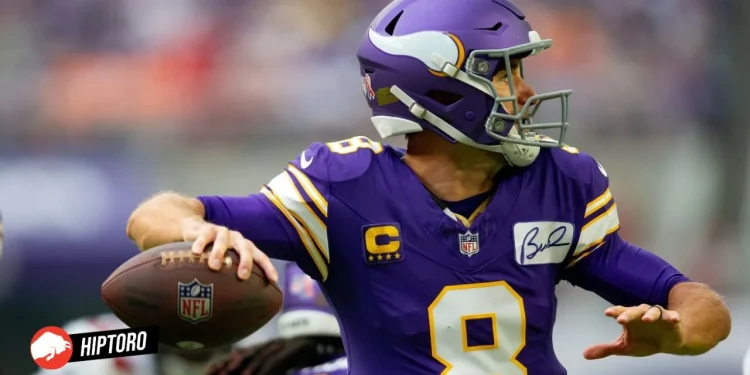In the high-stakes game of NFL contracts and cap management, the Minnesota Vikings find themselves at a crossroads. The heart of the matter lies with Justin Jefferson, a wide receiver whose skill set has not only redefined the team’s offensive playbook but has also set the stage for a financial reshuffle that could see notable departures from the Vikings’ roster.
With rumors swirling about Jefferson’s imminent contract extension—a move that could tie up approximately $30 million per season—the domino effect on the team’s budget and strategy is undeniable.

Justin Jefferson Effect: A Costly Endeavor
Justin Jefferson, lauded as possibly the best wide receiver in the game, is at the center of this financial whirlwind. The implications of securing Jefferson with a lucrative extension are vast, with an estimated $80 million guaranteed at signing. While there’s no disputing Jefferson’s value to the team, the repercussions of such a deal cast a long shadow over the Vikings’ ability to retain talent across the board.
The Quarterback Quandary: Kirk Cousins’ Crossroads
The Vikings’ quarterback situation further complicates the fiscal landscape. Kirk Cousins, known for his reliable if not spectacular play, faces an uncertain future with the team. As the best QB on the market, Cousins’ potential departure is a testament to the harsh realities of NFL economics.
The prospect of him securing a deal north of $40 million per season elsewhere leaves the Vikings in a precarious position, balancing the desire to maintain a competitive roster with the financial limitations imposed by high-value contracts.

Casualties of Cap Management
The ripple effects of Jefferson’s anticipated extension suggest a restructuring of the team’s roster. Alexander Mattison, once seen as the heir apparent in the Vikings’ backfield, seems poised to depart, a casualty not just of performance but of the economic recalibration necessitated by Jefferson’s valuation.
Similarly, Josh Dobbs and Danielle Hunter face uncertain futures with the team, their departures likely dictated more by financial calculus than by on-field contributions.
Post-NFL Combine First-Round 2024 NFL Mock Draft, via the @PFN365 simulator:
– Quarterbacks fly off the board early
– Brian Thomas Jr., Amarius Mims go Top 12
– Xavier Worthy's 4.21 speed stays in Texas
– Vikings trade back into Round 1 for a QB pic.twitter.com/lx6W0k0QsB— Ian Cummings (@IC_Draft) March 4, 2024
Danielle Hunter’s Dilemma: The Price of Excellence
Danielle Hunter’s situation epitomizes the delicate balance between talent retention and fiscal responsibility. After a standout season, Hunter’s market value has skyrocketed, positioning him as a prime candidate for a lucrative deal elsewhere. The Vikings, constrained by the looming Jefferson extension, may find themselves unable to match the offers Hunter is likely to command on the open market.

Minnesota Vikings’ Tightrope Walk
The Minnesota Vikings stand at a precipice, navigating the tightrope of NFL salary cap management. The decision to invest heavily in Justin Jefferson, while strategically sound given his prodigious talent, initiates a chain reaction that underscores the complexities of building and maintaining a competitive roster in the league.
As the Vikings chart their course through these financial waters, the broader implications of their choices will unfold in the seasons to come, illustrating the perennial challenge of balancing the books with the pursuit of championship glory.










